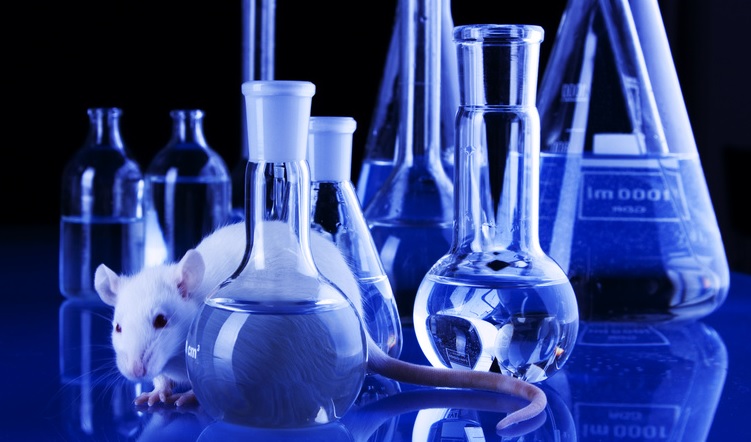Murine Antibodies - Info
What is a Murine (Mouse/Rat) Antibody?
Definition of murine antibodies
Antibodies, also called immunoglobulins, make up the main part of the specific endogenous defence. They are made by the immune system in response to substances which are foreign to the organism (antigens = antibody generating). Donor organisms like mice and rats are being used for the production of specific antibodies. Those are referred to as murine (belonging to the family muridea = rodents) antibodies.
What are murine cells?
Murine cells are cells that originate from mice or rats. The same applies to murine stem cells.
The advantage of using murine cells lies in their use for basic research: while experiments on human embryonic stem cells are ethically controversial, ethical objections to the use of murine embryonic stem cells do not occur as frequently.
By genetically modifying murine stem cells, which then develop into blastocysts and can be inserted into a mouse, dee targeted breeding of knockout mice becomes possible. "Knockout" refers to the deliberate silencing of one or more genes with the aim of researching the emergence, development and control of diseases.
Following the research in the mouse model, the findings will be transferred to humans.
Monoclonal and polyclonal antibodies
A distinction is made between monoclonal and polyclonal antibodies. Polyclonal antibodies are a mixture of antibodies which are produced by different B-cells (type of white blood cells). Although they are directed against the same antigen they detect different molecular structures at their surface (epitopes). However, monoclonal antibodies are clones of one single B-cell and are able to recognize a specific epitope of an antigen.
Polyclonal antibodies are mostly used for vaccinations and antisera, whereas monoclonal antibodies show a higher specificity and thus are used for therapeutic and diagnostic purposes. Monoclonal antibodies also play an important role in medical and biological research.
Production of polyclonal and monoclonal antibodies
The isolation of polyclonal antibodies can be made by immunisation (comparable to a vaccination) of a donor organism (preferentially rabbits or goats) and purification of the antibody mixture from the obtained serum afterwards.
Comparatively far more difficult is the production of monoclonal antibodies which mainly takes place in mice or rats. The hybridoma technique, developed in 1975 by Milstein and Köhler, allows the production of large amounts of monoclonal antibodies. For this, a donor organism is immunized several times with small amounts of the antigen for that antibodies are needed. By this way, more B-cells are produced which can be isolated afterwards in the spleen of the animal. In order to prevent dying of B-cells in culture, they are fused with immortalized myeloma cells (cancer cells). In this manner so-called hybridoma cells are formed. They are able to divide themselves indefinitely and to produce antibodies. To identify the hybridoma cell line which produces the wanted antibody, a selection via ELISA (Enzyme-linked-immunosorbent-assay) is performed. Positive clones will continuously be cultivated in order to regularly isolate the monoclonal antibodies against the antigen of interest.
Therapeutic applications of monoclonal antibodies
Using monoclonal murine antibodies in order to fight several diseases (e. g. cancer, rejection after transplantation, rheumatic diseases and autoimmune diseases) did not deliver the expected therapeutical success. The immune response initiated by murine antibodies is one of the main problems. The human immune system recognizes murine antibodies from mice or rats as foreign substances and starts the production of antibodies against these by itself. This leads on one hand to ineffectiveness of the applied murine antibodies and on the other hand to unpleasant side effects like an anaphylactic shock or the serum sickness.
In order to avoid a reaction of the human immune system an attempt was made to generate monoclonal murine antibodies which are more similar to those of humans. Proceedings in biotechnology of recombinant DNA made it finally possible to develop fully human monoclonal antibodies which are less immunogen and suitable for therapeutic uses over a longer period.




